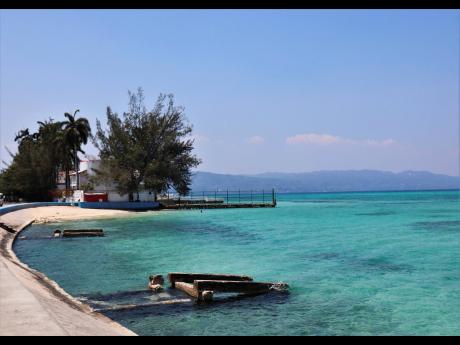Wykeham McNeill | Tourism after COVID-19
The crisis of COVID-19 facing Jamaica and its tourism industry must be used as an opportunity to revolutionise the industry and re-engineer the sector to accommodate the new world we will exist in after COVID-19.
There is no doubt that this crisis poses an unprecedented danger to Jamaica, not only from loss of life but also because of the massive economic fallout that it will cause. The IMF has predicted a 6.2 per cent contraction of the economies of the Caribbean in 2020, resulting in the deepest recession the region has faced in over half a century.
This recession will also affect our main source markets, the US, Canada, the UK, and Europe, which will have a negative effect on their travel patterns in the months and years to come.
The cruise industry is facing disastrous times. Carnival, the largest cruise line in the world, was only able to raise USD$6 billion to stay afloat after a historic Federal Reserve intervention in an industry that is now fully grounded.
Similarly, the airline industry is seeing perilous times. It is reported that about 2.3 million persons passed through checkpoints on March 1, 2020, just two months ago, about the same amount that travelled on the same date in 2019. By early April, less than 100,000 persons were travelling per day, a decrease of over 95 per cent.
With these startling statistics, the question is, how are we going to move forward as a country? One thing is certain: we must use this crisis as an opportunity to determine what must be done now in order to come out of it stronger than we went in.
There are two things that have to be considered:
1. What will the world be like post-COVID-19, and how do we adapt to take advantage of it?
2. What changes do we have to make in our industry to make it stronger and more resilient (what type of industry do we envision/want for ourselves)?
Post-COVID-19
Visitors tend to seek out safe destinations, but what is the new definition of safe? The world is changing, and the days of indiscriminate mingling are over. Masks are now a fact of life. American Airlines, Delta, and United have announced initiatives for passengers to wear masks at all times, except when eating, and social distancing on planes is soon to come. President Trump recently said he may be testing incoming international passengers in the future. Therefore, our new marketing must aspire to make us the safest destination in the world. To achieve this, we will have to examine how we approach every aspect of our industry.
Companies such as Hilton have teamed up with Lysol and Dettol to achieve cleaning protocols. Meanwhile, Marriott has created a cleanliness council.
Jamaica needs to develop a series of protocols and policies in partnership with the private sector to allow us to achieve the goal of being able to market ourselves as the safest and healthiest destination. (This discussion must include how we use widespread testing to protect not just our visitors but ourselves.)
Stronger and better
(Formalise businesses)
This crisis has unearthed many weaknesses in our industry and economy. First, there is much informality. Many of the companies in and around the industry operate outside of the formal structure, and many of the workers are not properly registered or are hired on contract. This has made attempts at executing targeted stimulus packages to workers almost impossible, and many have had to fall back on compassionate grants.
The Government must now move with alacrity to put in place policies to allow for the orderly formalisation of the majority of the businesses and workers in the sector.
Deepen and protect linkages
It is now universally recognised that the linkages between tourism and the broader economy are critical. We will need to deepen these linkages, but for now, those in place, especially those in the agricultural and manufacturing sector, must be protected by the Government to ensure they survive and can actively participate to help the economy reroute.
Strengthen social safety net
There are approximately 500,000 persons who pay NIS/NHT. This out of a total working labour force of 1.2 million. This needs to be addressed urgently. Any worker who paid NIS consistently before March 31 and subsequently has not paid due to unemployment should automatically be considered to get a stimulus grant, and the funds should come from these agencies (NIS/NHT).
We recently passed the Tourism Workers Pension Act, which is a step in the right direction, but we must not stop there. Now, more than ever, we recognise that we need an employment insurance plan to protect our workers who have been separated from their job for whatever reason.
This crisis will pass, and Jamaica will recover. The fundamentals of our tourism industry are strong, and our people are unique and resilient. But our resolve should not just be to survive but to come out stronger and better than when we went in.
- Dr Wykeham McNeill is shadow minister of tourism and member of parliament for Western Westmoreland. Email feedback to columns@gleanerjm.com.

